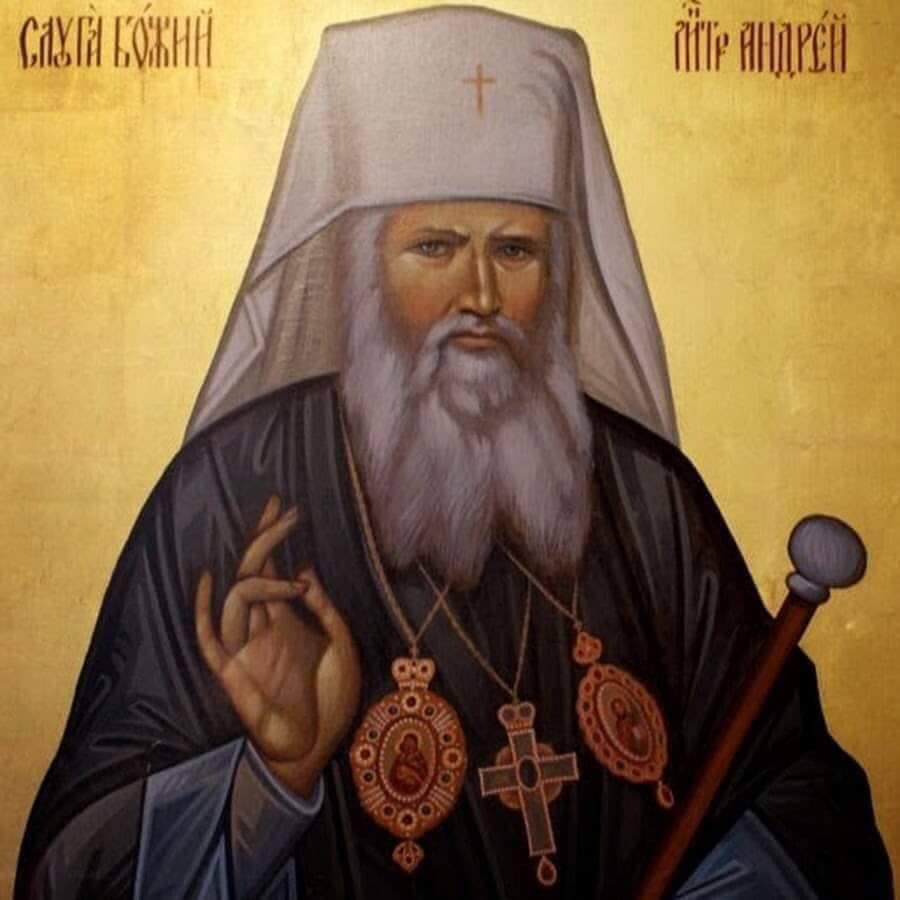 Today is the 75th anniversary of Metropolitan Andrey Sheptytsky (+Nov. 1, 1944).
Today is the 75th anniversary of Metropolitan Andrey Sheptytsky (+Nov. 1, 1944).
Prayer for the Beatification of the Servant of God Metropolitan Andrey
Our Lord Jesus Christ – You always reward Your faithful servants, not only with special gifts of Your love, but also with the eternal reward of the saints in heaven, and in many cases You grant them the recognition of sanctity by Your Church here on earth.
We humbly pray: grant that Your faithful servant Metropolitan Andrey be numbered among the saints. Throughout his just life, “full of suffering and trials,” he was a good shepherd for his flock and a great labourer for Christian unity. And through his beatification and intercession, grant our entire people the great gift of unity and love. Amen.
Молитва за Прославу Слуги Божого Митрополита Андрея
Господи Ісусе Христе – Ти завжди нагороджуєш Твоїх вірних слуг не тільки особливішими дарами Своєї любови, але й вічною нагородою святих у небі, а в многих випадках і прославою на Твоїх святих престолах, тут на землі.
Покірно благаємо Тебе: зволь так прославити Твого вірного слугу Митрополита Андрея. Він упродовж свого праведного життя, „повного терпінь і досвідів”, був добрим пастирем свого стада і великим подвижником церковної єдности. А через його прославу і заступництво пошли і цілому народові нашому великий дар єдности і любови. Амінь.
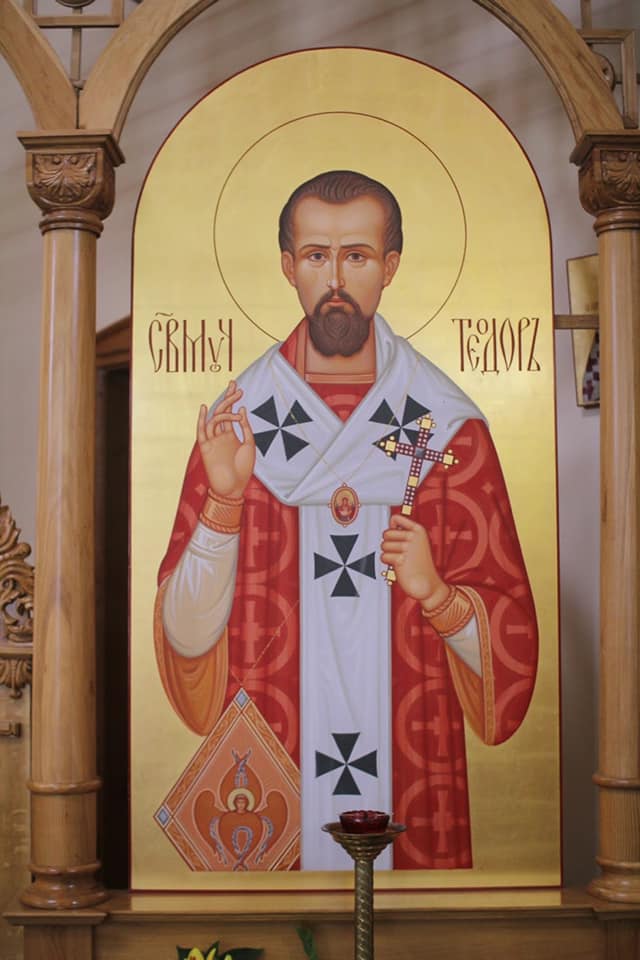 Today, the Church commemorates, “The holy priest-martyr Theodore Romzha. Born in Veliky Bychkiv in Carpatho-Russia in 1911, he came from a poor family and exhibited a vocation to the priesthood. Sent to Rome for studies, he was ordained in 1937 and sent to the country parish of Berzovo. In 1939, he was called to the seminary at Uzhhorod and taught there until 1944. In 1944, despite his youth, he was ordained bishop for the Mukachevo Eparchy. During the Soviet Army’s occupation of Carpatho-Russia, he was tireless in his care for his flock and in his defense of the rights of the Byzantine Catholic Church.
Today, the Church commemorates, “The holy priest-martyr Theodore Romzha. Born in Veliky Bychkiv in Carpatho-Russia in 1911, he came from a poor family and exhibited a vocation to the priesthood. Sent to Rome for studies, he was ordained in 1937 and sent to the country parish of Berzovo. In 1939, he was called to the seminary at Uzhhorod and taught there until 1944. In 1944, despite his youth, he was ordained bishop for the Mukachevo Eparchy. During the Soviet Army’s occupation of Carpatho-Russia, he was tireless in his care for his flock and in his defense of the rights of the Byzantine Catholic Church.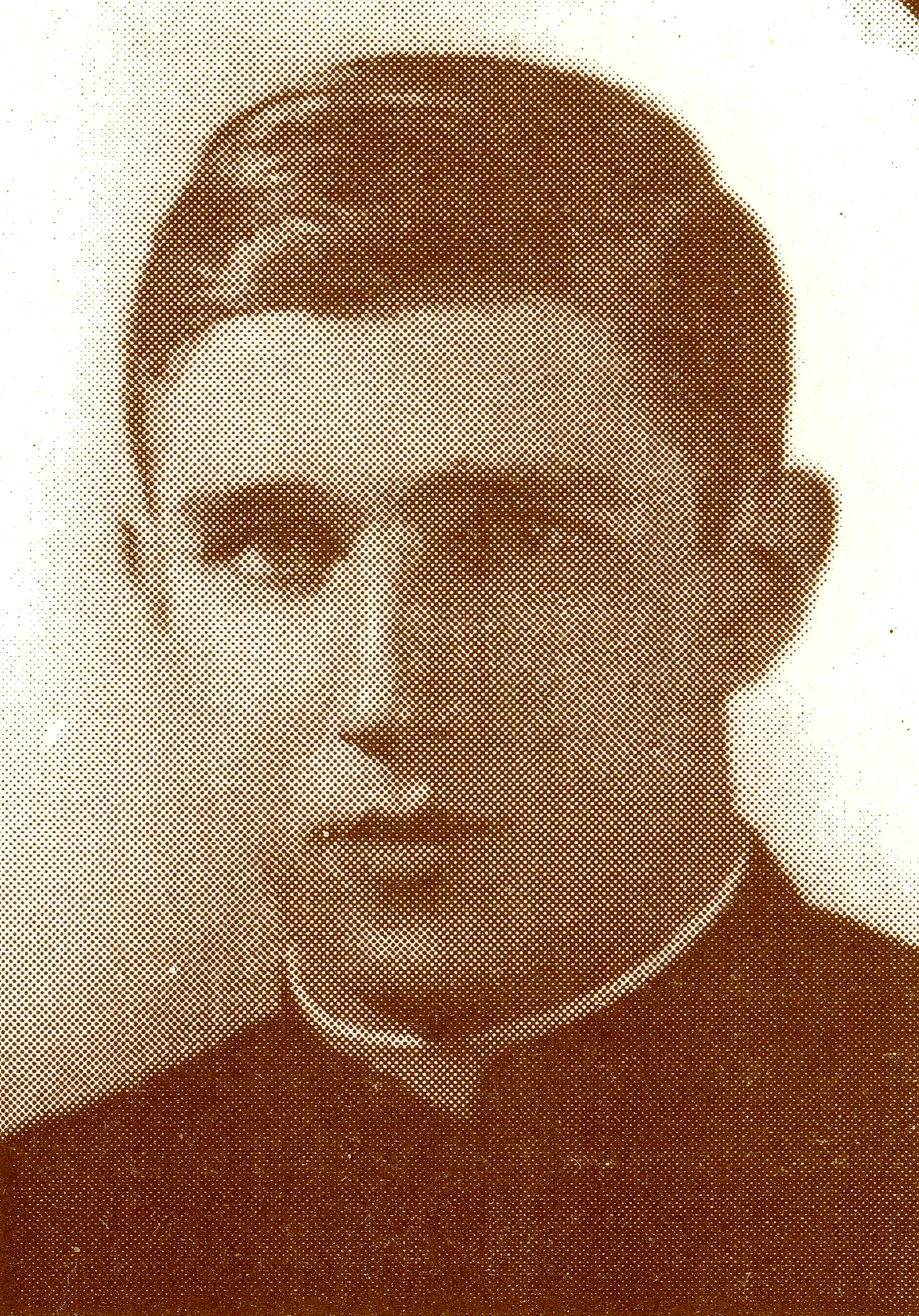 Today, on the liturgical calendar the UGCC Church liturgically remembers Blessed Roman Lysko who died on this date following torture and starvation in 1949. He was born on 14 August 1914 in the Horodok, Lviv District, Ukraine.
Today, on the liturgical calendar the UGCC Church liturgically remembers Blessed Roman Lysko who died on this date following torture and starvation in 1949. He was born on 14 August 1914 in the Horodok, Lviv District, Ukraine.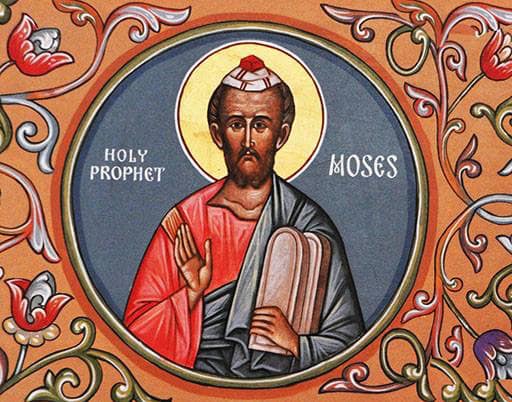 Today we celebrate St Moses the Prophet, according to tradition was born a Jew in Egypt at a time when the Jewish population was enslaved to the Egyptians. Moses was abandoned by his mother only to be adopted by the Egyptian royal family. Eventually Moses was called by God to be a leader to the Jewish people, interceding for them before Pharaoh, demanding their liberation, “Let my people go!” What followed is one of the earliest recorded campaigns of mass unarmed resistance in history. Trusting not in force of arms, but in the Lord, the Jewish people prayed, and God delivered them. They won their freedom, but it was not given easily. They marched out of Egypt in search of a promised land, but Pharaoh and his army followed, only to be once again routed by the work of God.
Today we celebrate St Moses the Prophet, according to tradition was born a Jew in Egypt at a time when the Jewish population was enslaved to the Egyptians. Moses was abandoned by his mother only to be adopted by the Egyptian royal family. Eventually Moses was called by God to be a leader to the Jewish people, interceding for them before Pharaoh, demanding their liberation, “Let my people go!” What followed is one of the earliest recorded campaigns of mass unarmed resistance in history. Trusting not in force of arms, but in the Lord, the Jewish people prayed, and God delivered them. They won their freedom, but it was not given easily. They marched out of Egypt in search of a promised land, but Pharaoh and his army followed, only to be once again routed by the work of God.
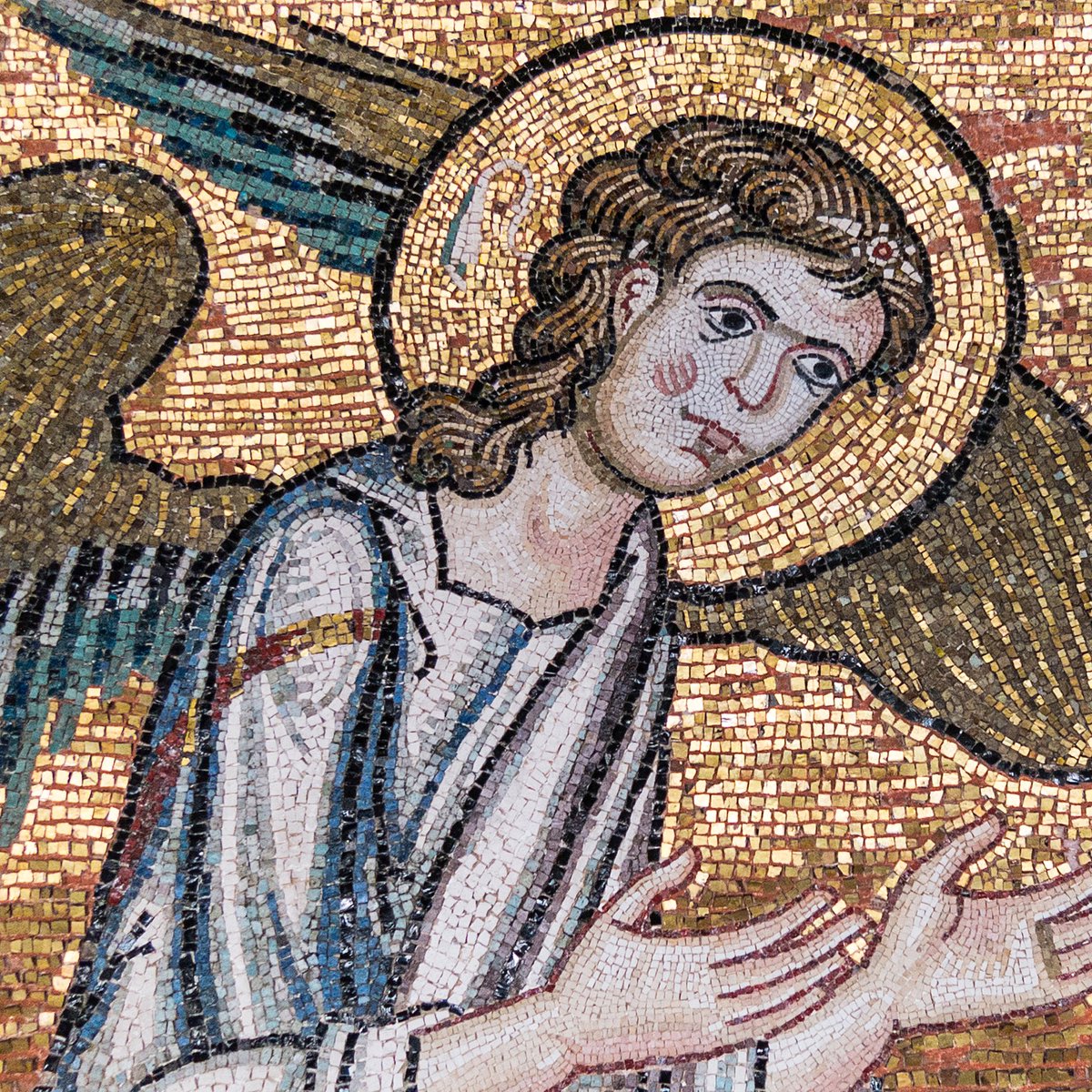 Prayer of St. John Chrysostom
Prayer of St. John Chrysostom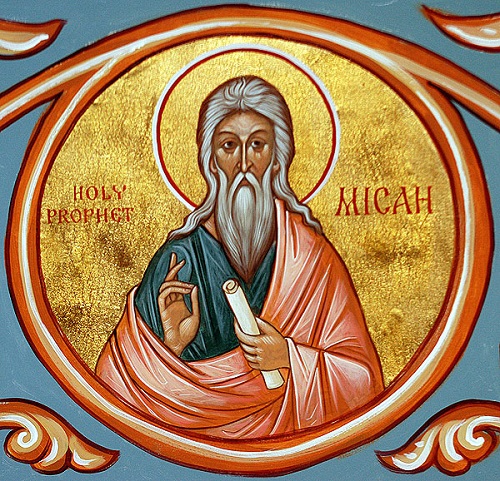 Micah prophesied between 750 and 687 bc. He was a contemporary of Amos and Isaiah.
Micah prophesied between 750 and 687 bc. He was a contemporary of Amos and Isaiah.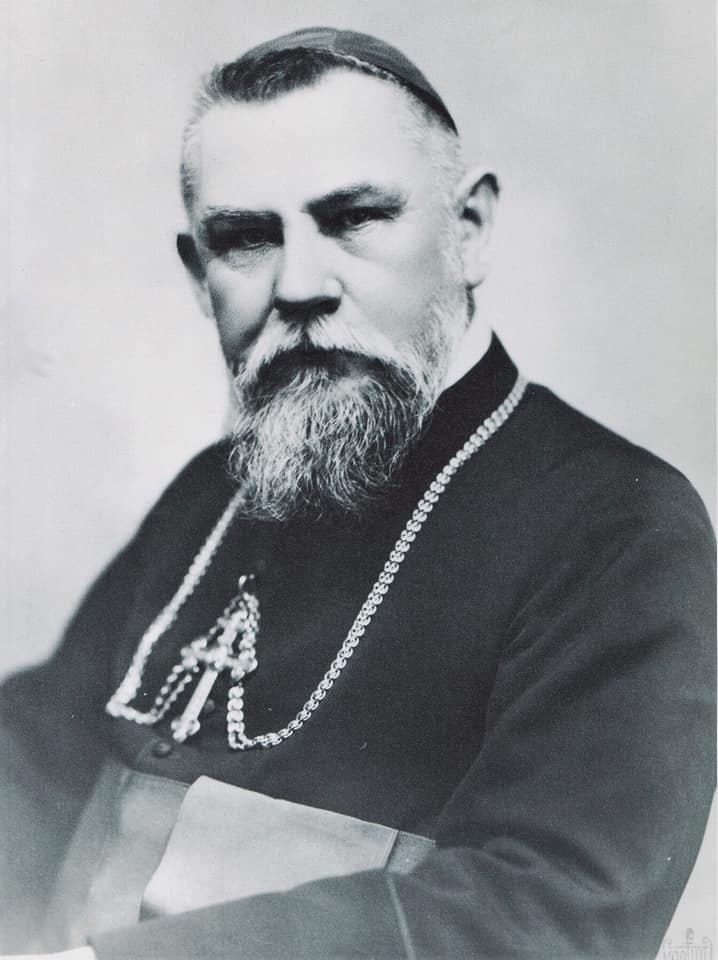 August 4th is the feast of Blessed Ioan Bălan: Romanian Greek-Catholic priest, Protopope of Bucharest, Rector of Blaj’s Theological Academy, Eparch of Lugoj, and martyr of the Communist persecutions—who died on this day in 1959, after over a decade of imprisonment without trial.
August 4th is the feast of Blessed Ioan Bălan: Romanian Greek-Catholic priest, Protopope of Bucharest, Rector of Blaj’s Theological Academy, Eparch of Lugoj, and martyr of the Communist persecutions—who died on this day in 1959, after over a decade of imprisonment without trial.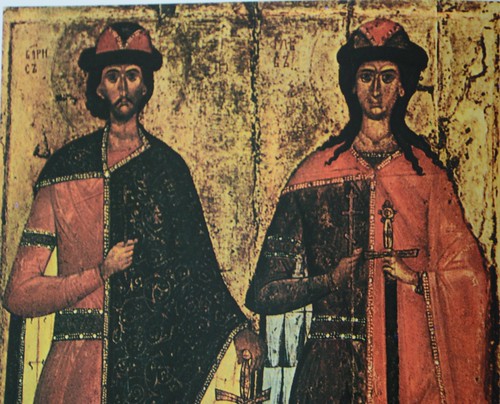 Today is the memorial of the holy protomartyrs of Kievan-Rus’, Boris and Gleb, known in baptism named Roman and David.
Today is the memorial of the holy protomartyrs of Kievan-Rus’, Boris and Gleb, known in baptism named Roman and David.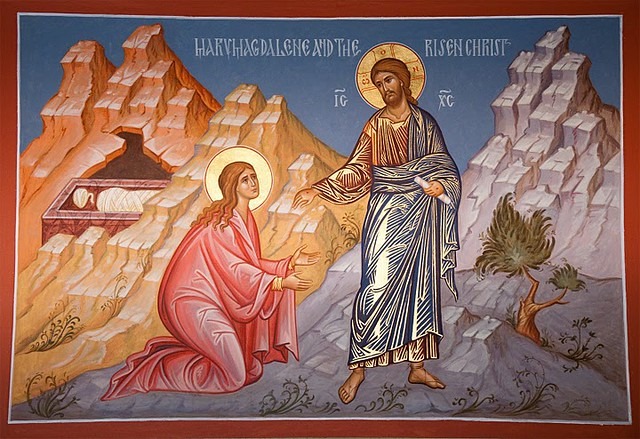 “But Mary stood weeping outside the tomb, and as she wept she stooped to look into the tomb; and she saw two angels in white, sitting where the body of Jesus had lain, one at the head and one at the feet. They said to her, ‘Woman, why are you weeping?’ She said to them, ‘Because they have taken away my Lord, and I do not know where they have laid him.’ Saying this, she turned round and saw Jesus standing, but she did not know that it was Jesus. Jesus said to her, ‘Woman, why are you weeping? Whom do you seek?’ Supposing him to be the gardener, she said to him, ‘Sir, if you have carried him away, tell me where you have laid him, and I will take him away.’ Jesus said to her, ‘Mary.’ She turned and said to him in Hebrew, ‘Rabboni!’ (which means Teacher).” (Jn 20: 11-16)
“But Mary stood weeping outside the tomb, and as she wept she stooped to look into the tomb; and she saw two angels in white, sitting where the body of Jesus had lain, one at the head and one at the feet. They said to her, ‘Woman, why are you weeping?’ She said to them, ‘Because they have taken away my Lord, and I do not know where they have laid him.’ Saying this, she turned round and saw Jesus standing, but she did not know that it was Jesus. Jesus said to her, ‘Woman, why are you weeping? Whom do you seek?’ Supposing him to be the gardener, she said to him, ‘Sir, if you have carried him away, tell me where you have laid him, and I will take him away.’ Jesus said to her, ‘Mary.’ She turned and said to him in Hebrew, ‘Rabboni!’ (which means Teacher).” (Jn 20: 11-16)